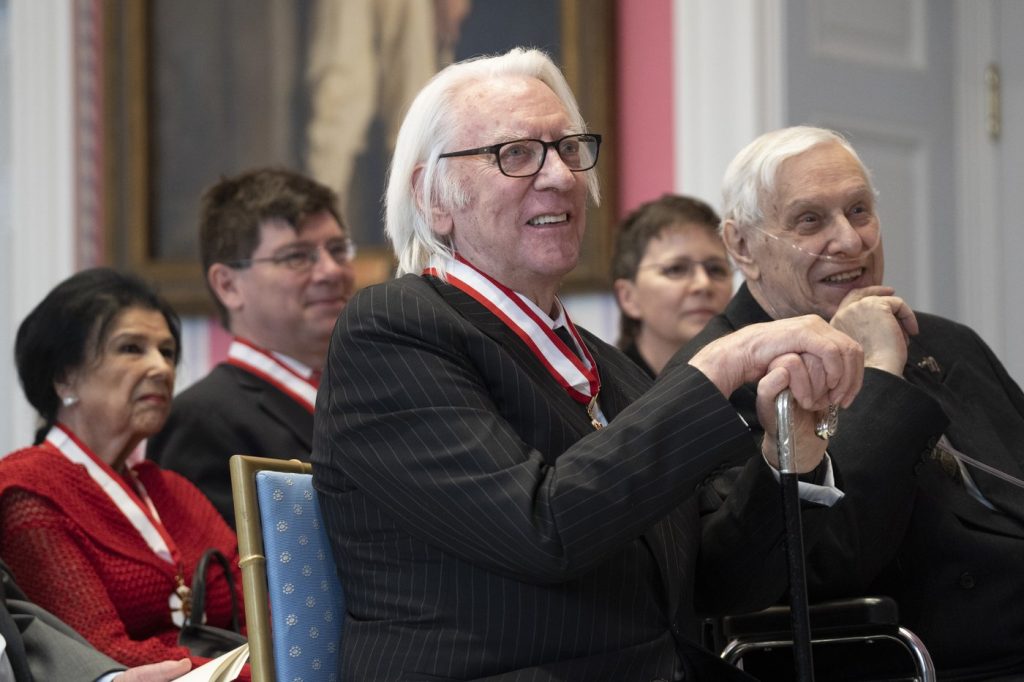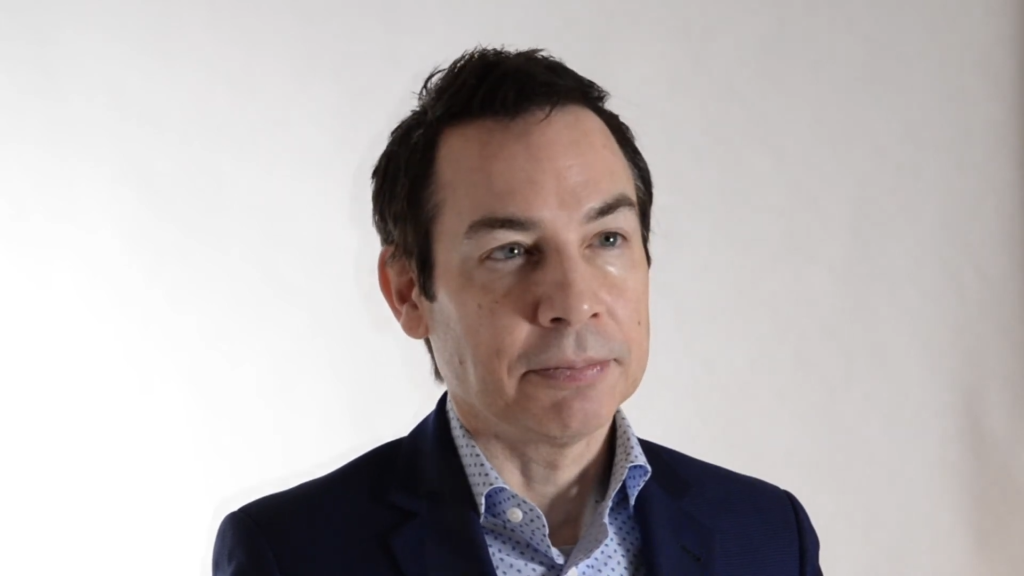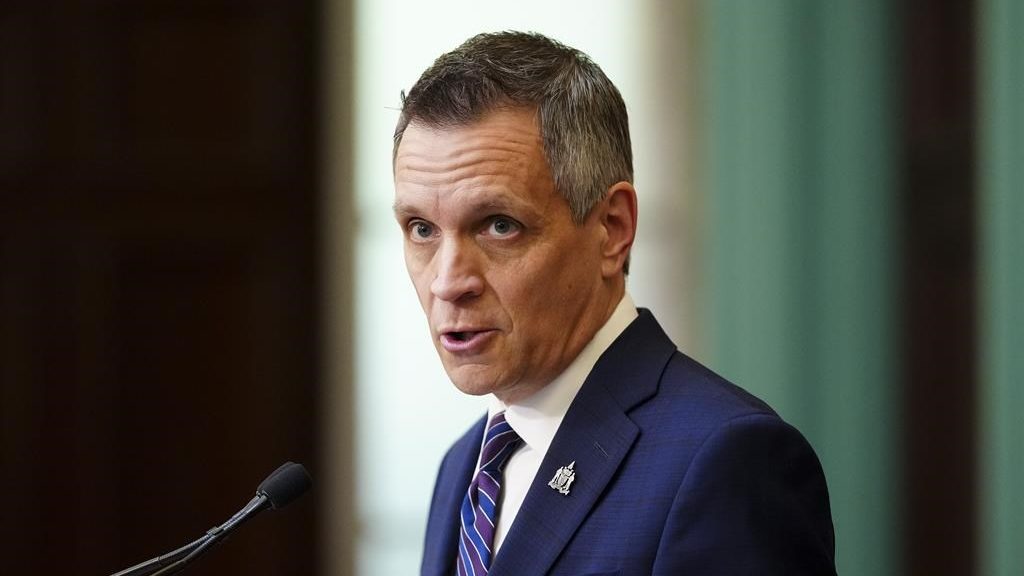Sutherland, a devout patriot, said Canada can’t “become a clone” of another country

Posted Jun 21, 2024 05:53:13 PM.
Last Updated Jun 21, 2024 05:54:19 PM.
Donald Sutherland’s cinematic journey took him around the globe, but his heartstrings were always tied to Canada.
Hailing from New Brunswick, the actor’s love for his country was as enduring as the northern lights, shining through his keen interest in federal politics, his love for Canadian baseball and his support for homegrown talent on screen, say several people who crossed paths with the screen icon.
His son Kiefer said Thursday that the acting legend had died at age 88.
Sutherland was unabashedly patriotic and passionately advocated for Canada to maintain its national identity in a 2015 interview with The Canadian Press.
“People in Canada, we’ve lost something, and I hate that we’ve lost it,” he said while promoting the animated film “Pirate’s Passage.”
The Canadian movie, which Sutherland co-wrote and lent his voice to, tells the story of a struggling Nova Scotian family that receives help from the spirit of a pirate. The actor said he hoped the film would “remind people of why our country is so important.”
“We cannot try to become a clone of some other country. We have to be who we are, and who we are as who we were, not who we are now,” said Sutherland, whose many accolades include a companionship of the Order of Canada and his own Canada Post stamp.
He added that Canadians “have a different sense of humour, a different sense of future than anybody else.”
Sutherland was a commanding and multifaceted actor with a career that spanned six decades and dozens of films, including “MASH,” “Invasion of the Body Snatchers” and “The Hunger Games” franchise.
Despite his international success, Sutherland was invested in matters in his home country throughout his life and maintained a home in Quebec’s Eastern Townships. He never sought dual Canadian and American citizenship.
The screen icon wrote an op-ed in The Globe and Mail in 2015 decrying his inability to vote in the Canadian federal elections.
“Americans who live abroad can vote. They can vote because they’re citizens! Citizens! But I can’t,” he wrote.
Sutherland took issue with a long-standing law that barred Canadians from voting if they had lived outside the country for more than five consecutive years.
Globe and Mail reporter Mark MacKinnon, an expat living in the United Kingdom, said Friday that Sutherland asked him for help in getting the piece published after Sutherland saw a similar opinion piece MacKinnon had penned.
Though Sutherland “was not a fan of the editing process” and took issue with the Globe changing one line in his piece, MacKinnon said Sutherland was so grateful for the help that he invited the reporter and his wife to the premiere of “The Hunger Games: Mockingjay – Part 2” in London.
“He was the opposite of someone who is egotistical. He was very down-to-earth, very different from everybody else in the room,” MacKinnon said when reached in London.
While other celebrities at the premiere talked about “who made what dress,” Sutherland and his wife Francine Racette were more interested in sitting in a corner and “chatting away about Canadian politics,” said MacKinnon.
“He was very attached to being Canadian and that was an important part of his identity. And like me, he was furious that someone thought that we were somehow less Canadian because we don’t live inside the country’s borders.”
Sutherland was also a huge fan of the Montreal Expos during their time in Major League Baseball, even reorganizing his summer shooting schedule around games.
“We knew he was a superfan, he was always seated on the third-base side of Olympic Stadium, just about 10 rows from the field,” veteran sports writer and former Expos PR chief Richard Griffin told The Canadian Press.
Cameron Bailey, CEO of the Toronto International Film Festival, said Sutherland was part of the same generation that produced Canadian legends Neil Young, Joni Mitchell and Pierre Elliott Trudeau.
“There was a certain moment in the 1960s when Canada was one of the most exciting places in the world to be, where Canadians were projecting a very modern sensibility around the world and a socially engaged sensibility with a lot of artistic ambition and creativity,” he said.
“He was doing on screen what we were seeing, elsewhere from other Canadians in music and writing and other areas.”
In 1965, Sutherland married the late actress Shirley Douglas, an impassioned Canadian activist who was the daughter of medicare founder Tommy Douglas. Bailey described the duo — who divorced in 1970 — as “quite a Canadian power couple.”
Bailey said Sutherland showed his love for Canada by maintaining a personal and professional connection to the country.
“He returned when he could to work here and cultivated younger talent here as well,” he said of Sutherland.
“He’s been consistent for many years in being able to step back and forth between Hollywood and Canada. I think that nimble approach to how he used his stardom and his power in the movie industry is really something to learn from.”
— with files from Greg Strong in Toronto.
This report by The Canadian Press was first published June 21, 2024.
Alex Nino Gheciu, The Canadian Press








